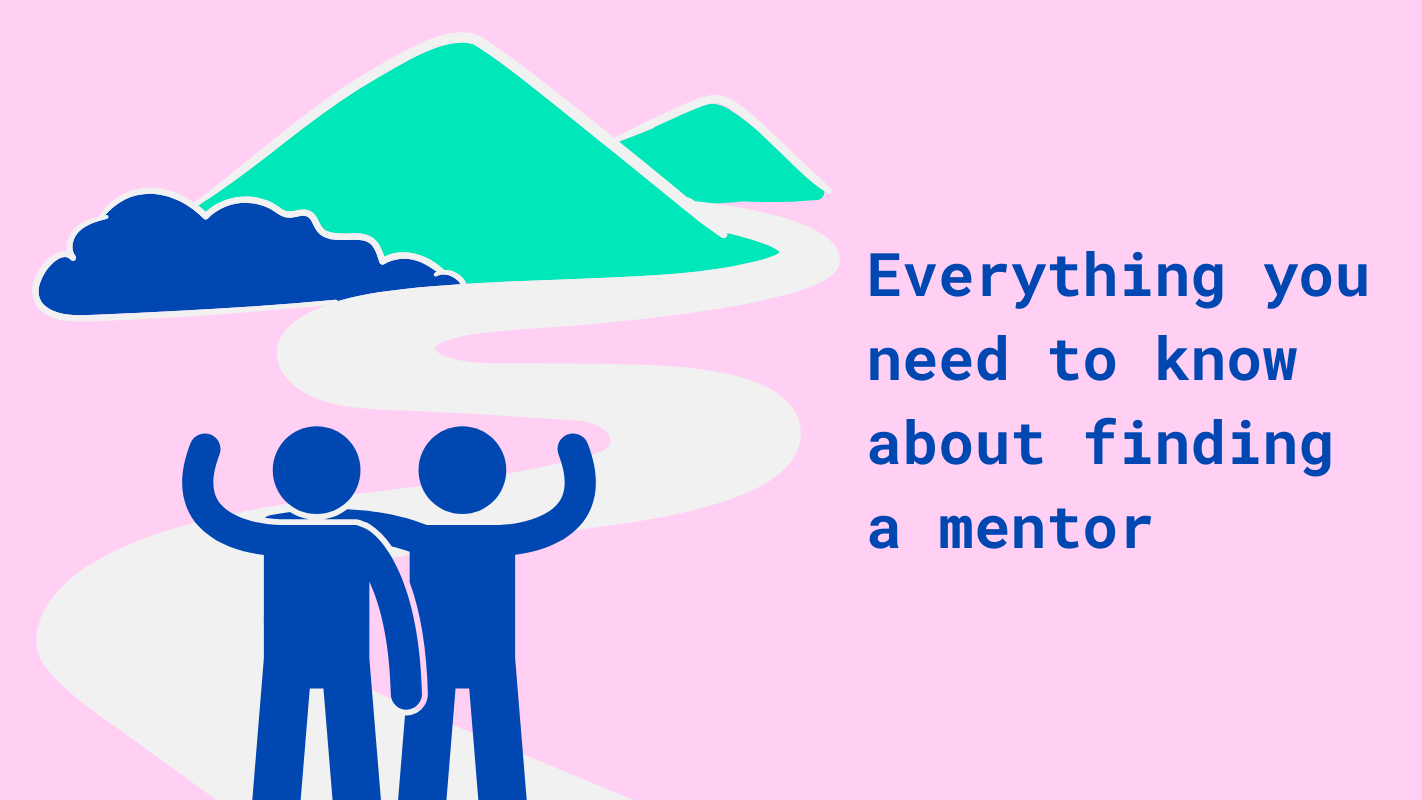
Everything you need to know about finding a mentor
When you find the right one, a mentor can be a game changer for your career. They can help you discover hidden strengths and new passions and what direction you should potentially take your career.
Sounds great, right?
So if you’ve decided that “I’ve got to get me one of those”, what’s the next step? How do you find a mentor? How do you ask them to be your mentor?

We spoke with Nicolette Baker, a brand, marketing and corporate communications leader, with over 15 years professional experience. Throughout her career, Nicolette has had fantastic mentors that have helped her progress her career to an executive and senior leadership level, while also taking the time to give back and mentor the next generation of marketing professionals. Safe to say, she knows a thing or two about mentoring.
Ready to start the mentorship journey? Keep reading to see what Nicolette has to say.
The motivation for mentorship
If you’re seeking a mentor, you need to have it clear in your mind what your goal is and what you want to get out of it. I’ll be clear now – a job isn’t, and should never be, the goal of mentorship. Senior people are going to see right through that.
Have a curious mindset and be open to learning. Think about what areas that you want to grow and strengthen? What can people give you help and guidance around?
For instance, if you’re a junior, perhaps you want to get a better understanding about where you fit in the whole marketing function and how you writing a blog or putting up a social media post connects to the marketing strategy and the purpose of the business.
If you’re at the management level, you may need help getting out of the management mindset and help developing that strategic and creative thinking to help alleviate problems and create sales opportunities for your business.
If you’re at that Head of Marketing/Brand/Creative etc level, getting better at navigating relationships with senior executives and demonstrating the value of what your team does may be a priority.
Or perhaps you want a mentor to assist with those more hands on skills, like improving your public speaking or creating a personal brand.
Regardless of what you want to get out of the relationship – and it is a relationship, it can’t be one sided – mentors will often see your strengths where you may not. They’ll help you understand where you’re at and direct you to grow as a strategic thinker.
How to find a mentor
While you can find mentors at work, try seeking someone outside of your work. They’ll have a unique perspective and can look at you and your skills outside the lens of your specific workplace.
Make sure that the people you’re approaching are not too high of a level from where you are either. If you’re at a coordinator level, don’t approach a CMO or anyone at that executive level. There’s too much of a disconnect and the gap in knowledge is too large. Ask people that are one-two levels above you.
So how do you meet them? You meet them in person.
For many, that’s going to involve getting outside of your comfort zone. You need to attend networking events and go to where senior people are hanging out. Connect with potential mentors on LinkedIn and then go see them speak either in person or online.
A mentor-mentee relationship has to be the right fit for both parties. The energy has to align and if you’re not on a similar wavelength, it’s not really going to work. That’s why meeting these people in person is so important – it can be hard to tell these things online.
How to ask for mentorship
It’s a delicate dance and I liken it to the dating scene. You find each other, if the energy aligns you meet up. If that goes well you book a future catch up!
You need to be aware that the people you’re approaching are incredibly time poor already. Great leaders will respond and will often say “I’m really interested, but I just don’t have the time now,” whereas those who don’t respond probably aren’t people oriented or similarly, are too busy. But if they don’t respond, don’t chase them, it just means they can’t make it work – it’s not a reflection of you.
So the actual asking. Before you even approach someone, make sure you’ve been consuming their content online and you know their experience. You may have already met them in-person at a networking event. This will all help with approaching them.
Craft a thoughtful statement along the lines of, “I really admire your career journey, what stood out to me was A, B and C. I’m really struggling with X, Y, Z and I think your experience could help me get past this. Would you be open to me buying you a coffee and I can ask you a few questions about it?”
It’s important to know you’re not trying to lock them into a long term mentoring relationship straight away. Like my dating analogy, you’re just seeing if the vibes are right and if they are, then the relationship can continue. If not, try again with someone else until you get the right fit. In the meantime you’re building a great new network and spending time on progressing yourself.
What makes a good mentor
There has to be an alignment, not necessarily on personality, but experience and how that can support you on your journey. Mentees really need to know themselves before embarking on this to help find the right alignment – look at things like DiSC profiles or the 16 Personalities test (it’s free!) and get to know yourself. Mentors also need to know how they’re going to add value to you, so you need to be specific about what you want to learn from the mentoring relationship.
The reason why most people say yes to mentoring is because they’re a people leader and they want to give back. I think you have to have that as a mentor, otherwise the mentorship is never going to be a priority.
Some of the best leaders I know are so incredibly time poor, but still pay it forward and mentor one or two people because they believe so deeply in them and their capabilities. And because they’ve carefully chosen who they mentor, the relationship can turn into a friendship. It’s special because even though you’re friends, they’re still looking out for you in a mentoring capacity and they see things that you never saw in yourself. Or even better, they give you the hope to believe for more. The best thing about mentors is they give you hope.
To wrap it all up
Give it a go. You just gotta get out there and give it a try. And if you don’t the only person that loses is you. You’re going to get rejected, but if you’re brave enough to ask the question in the first place, you will find someone. It’s only a matter of time.
I haven’t had a mentor at every stage of my career. It depends on the stage of your career, sometimes you’ll really need them and other times work is consuming and you just need to dig in and focus on that instead. But if you seek them out, they’ll be in your life when you need them.
Want to connect with Nicolette? You can get in touch via LinkedIn.

